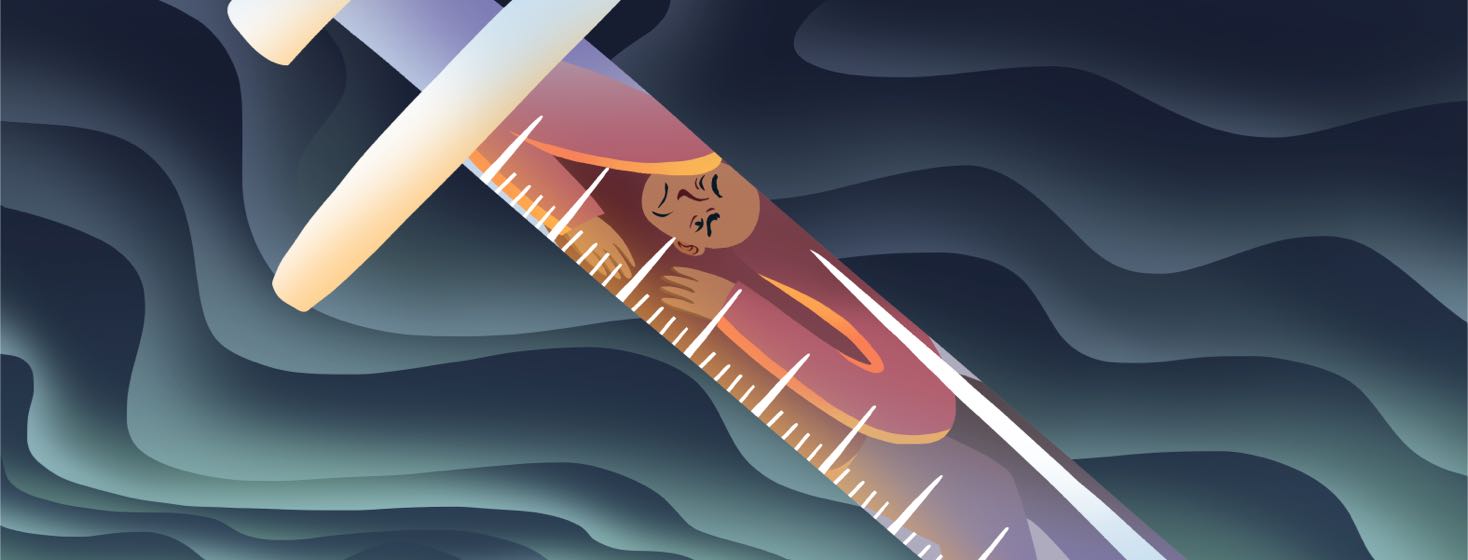A Giant Syringe
A man that I know and admire greatly has decided that five years of androgen deprivation therapy (ADT) is enough and is taking a treatment break. Given that he was diagnosed with stage 4 prostate cancer, it’s a very brave but incredibly scary thing to do. But he wants some normal life back, and I entirely get where he’s coming from.
Longterm ADT was described to me recently as someone using a giant syringe to suck the life blood out of you, and I don’t think that that is an excessive viewpoint.
Difficult ADT side effects
In addition to sexual dysfunction and physical changes, men on ADT (hormone therapy) for an extended period can experience depression, anxiety, memory difficulties, and fatigue.
In place of “unfavorable body composition,” words like “weight gain,” “man boobs” (gynecomastia), and “penile shrinkage” all hit home somewhat harder!
When I do awareness talks, I find that telling the audience that “chemical castration” can be a by-product of late diagnosis, which can lead to erectile dysfunction and loss of libido, has the desired shock impact. I try not to scare my audiences, but brutal honesty tends to get them to do something about their prostate health!
It can feel like a punishment
Body image is something that I’m very much aware of, given that prior to my diagnosis in May 2017 I was a sub-elite athlete, weighing in at around 145lbs at peak fitness. Now I'm weighing nearer 170lbs.
I hate the way I look now, I hate the man boobs, I hate the way the extra weight and loss of muscle mass has affected my athletic performance, and I hate the impact that ADT has had on my virility, my manhood – indeed my very being as a male.
I truly long for the day that ADT is not one of the “go to” treatments for men diagnosed with prostate cancer. But it has been a mainstay for decades, and I really can’t see it not remaining so going forward.
I have to say that there are times where I’ve felt ADT was a punishment. "What have I done wrong in my life to deserve this punishment" has often crept into my mind. The harsh reality is that we have to live with ADT or take the very brave decision to take a treatment break, and I’m not sure that I’m that brave.
Better supporting others on ADT
However, I strongly believe that we need to do much more to support men who are living with longterm ADT. I, for one, was never offered any support, and I had to take control of my cancer rather than being controlled by it. For me that meant exercise, but I knew how to do that.
Others, however, need much more support with exercise, and that’s why it’s so marvelous to see prehabilitation/rehabilitation programs like Prehab4Cancer in Greater Manchester, UK, coming to the fore. I’m very proud to be a patient representative in the program. I think this should become standard of care throughout the world, not just for cancer patients but also for other serious and debilitating illnesses.
How do you cope?
In the meantime we struggle on. The saving grace of ADT for me is that I’m now bucking the survival trends, and I’m in the 30% that survive 5 years. Long may it continue!
I’ll close by asking our readers whether they would be comfortable, as stage 4 cancer patients, taking a treatment break from the ADT that has kept their cancer under control. A second question I would ask is: how do you cope with the treatment side effects of longterm ADT?

Join the conversation